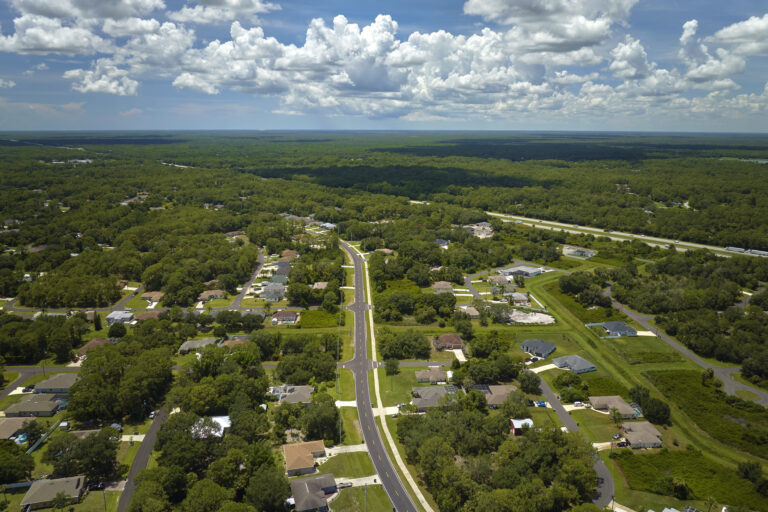Mental health affects every corner of our lives—from our relationships and work to our physical health and sense of self. In DeSoto County, Florida, more and more people are opening up about the challenges they face, whether it’s persistent anxiety, depression, or stress. But while the need for mental health support is growing, getting that care isn’t always easy, especially in smaller, rural communities like ours.
At DeSoto Memorial Hospital Behavioral Health, we see this every day. People want help. They need someone to talk to. They want to feel better. Our goal with this article is to shed light on the realities of mental health in DeSoto County—what the data shows, what challenges exist, and how we can all play a role in building a healthier, more supportive community.
Read the Complete Research Report
What the Numbers Say About Mental Health in DeSoto County
Statewide, about 1 in 5 adults in Florida is living with a mental health condition. For more serious illnesses, like bipolar disorder or schizophrenia, it’s closer to 1 in 20 (NAMI Florida). In DeSoto County, many people report feeling mentally unwell for 5 or more days a month (FLHealthCHARTS). That’s almost a week each month where stress, sadness, or anxiety interfere with daily life.
Even among older adults, mental health concerns are common. Roughly 1 in 5 people on Medicare in DeSoto have been diagnosed with depression (U.S. News).
For younger residents, the story is just as serious. In Florida, about 16% of teens report having experienced a major depressive episode—one of the highest rates in the country (SAMHSA Behavioral Health Barometer). And sadly, nearly two-thirds of those teens don’t get any kind of mental health care.
The Reality: Not Enough Providers, Not Enough Support
Let’s be honest—one of the biggest barriers to mental health care in DeSoto County is simply access. According to the HRSA, DeSoto is officially designated a Mental Health Professional Shortage Area. That means there just aren’t enough therapists, counselors, psychiatrists, or social workers to meet the need.
In fact, there are only around 8 to 10 licensed professionals available for the entire county. With nearly 38,000 residents, that comes out to about 1 provider for every 4,000 to 5,000 people. The Florida state average? It’s five times better (County Health Rankings).
What this means in real life is longer wait times, fewer appointment options, and a higher chance that people simply give up on getting help.
Young People Are Struggling More Than Ever
Our youth are facing growing pressure, and the data backs it up. In 2023, more than 30% of high schoolers in Florida said they felt sad or hopeless for two or more weeks straight—a red flag for depression (Florida Department of Health).
Self-harm hospital visits in DeSoto are above the state average, and rates of youth psychiatric hospitalization are higher than what we’d hope to see (FLHealthCHARTS).
The school district has added more mental health counselors, and that’s a big step. But the demand continues to grow. Early support matters, especially for kids experiencing trauma, behavioral issues, or bullying.
Insurance, Cost, and the Struggle to Afford Help
Insurance—or the lack of it—plays a huge role in mental health access. In DeSoto, about 18% of residents don’t have health insurance, and for adults under 65, that number is closer to 1 in 4 (U.S. Census Bureau).
Even people who are insured often face high costs or limited provider networks. According to NAMI Florida, people are five times more likely to go out-of-network for mental health care than for physical health care. That drives up costs and makes care harder to find.
Medicaid is a lifeline for many low-income families in DeSoto, but not every provider accepts it. And when there are only a handful of therapists in the county to begin with, it’s even tougher to find someone who takes your plan.
Telehealth: A Welcome Bridge
If there’s one positive change we’ve seen since the pandemic, it’s the rise of telehealth. Florida made it easier to offer and access mental health care remotely, and it’s made a real difference in rural areas like ours.
Today, more than 60% of all telehealth visits in the state are for mental health (Florida Medicaid Managed Medical Assistance Annual Report). That means people in DeSoto can talk to a therapist or get help managing medications without having to drive across multiple counties.
Telehealth isn’t perfect—not everyone has a stable internet connection or private space to talk—but it’s a step forward. And for many, it’s the difference between getting help and continuing to struggle alone.
How COVID Changed the Conversation
The pandemic put a spotlight on mental health like never before. In 2021, more than 40% of adults in Florida said they were experiencing anxiety or depression symptoms. Even two years later, about 1 in 3 adults still feel that way (CDC Household Pulse Survey).
Kids felt it too. With schools closed, routines upended, and families facing job losses, stress and mental health issues skyrocketed. Some numbers are improving, but many people are still trying to find their footing.
Moving Forward Together
Florida has invested over $5.8 billion in mental health and substance abuse programs in recent years—funding that supports mobile crisis teams, school counselors, and telehealth tools (Florida Behavioral Health Association).
Locally, we’ve seen more awareness, more screenings, and stronger partnerships across community services. But we still need to do more. DeSoto deserves better access, more providers, and stronger support networks.
Final Thoughts
Mental health care isn’t just about treating illness—it’s about helping people live fuller, more connected lives. Here in DeSoto County, we see both the struggles and the resilience of our neighbors every day. And we know that with the right care, things can get better.
If you or someone you know needs outpatient care, please contact us today. Our team at DeSoto Memorial Hospital Behavioral Health is here to support you every step of the way.

